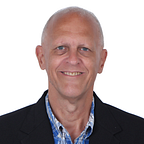Why the “Magic” Wonder Pill Syndrome is Making Americans Sicker than Ever
And “alternative” healthcare is almost as bad
14 min readSep 3, 2019
The human weakness for a “quick fix” isn’t new, but the modern sickcare industry encourages us to take it to new levels.
And, as people naturally looking for the easy way out, we want to believe in what’s easy and overhyped instead of…
